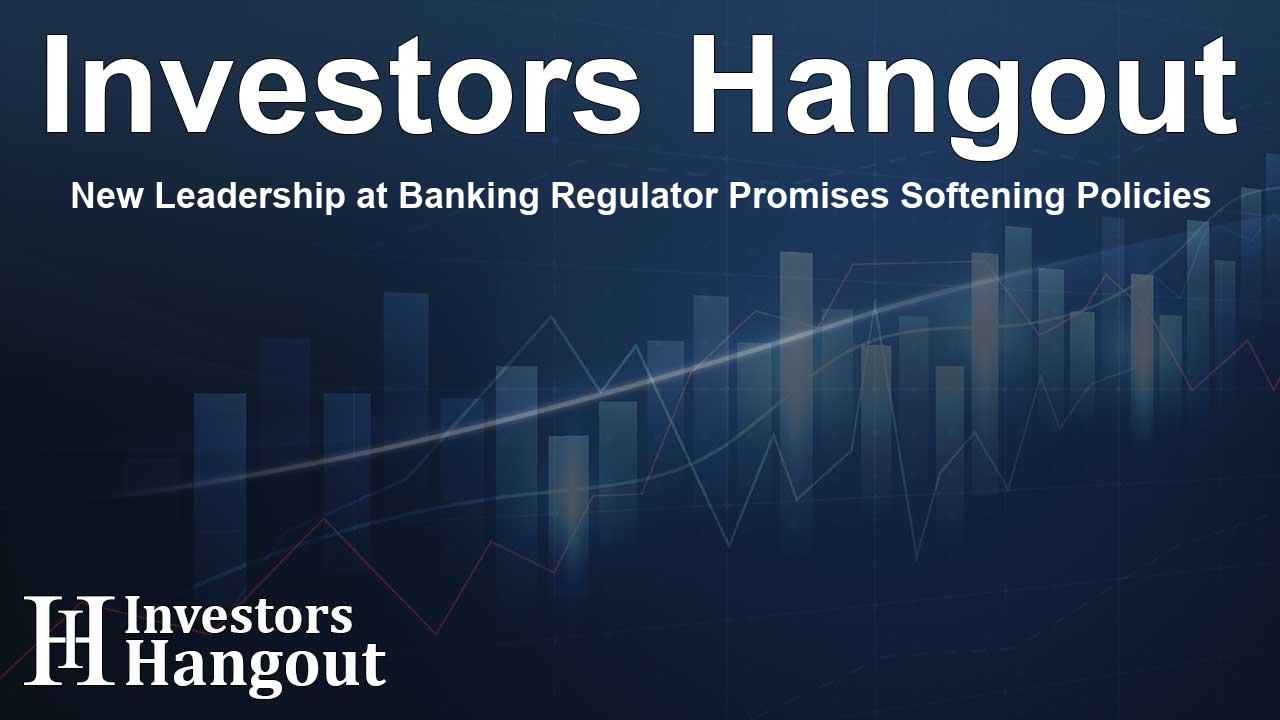New Leadership at Banking Regulator Promises Softening Policies

New Leadership at Banking Regulator Emphasizes Lighter Touch
Recent developments in the U.S. banking sector indicate a potential shift in regulatory policies that could affect the financial landscape significantly. Travis Hill, who is poised to become the acting chief of the Federal Deposit Insurance Corporation (FDIC), has expressed a vision for a softer regulatory framework that seeks to relax stringent capital requirements and embrace emerging technologies.
Travis Hill's Vision for Regulatory Change
As the vice chair of the FDIC, Travis Hill articulated a comprehensive plan focusing on a more flexible approach to bank regulations. With expectations of a fresh direction coinciding with the new administration, Hill believes that the FDIC must navigate a path that better aligns with the evolving needs of today's banking environment.
Reevaluation of Capital Requirements
One of the focal points of Hill's proposals involves the reassessment of capital requirements imposed on large financial institutions. Currently set by regulations stemming from the Basel III framework, these requirements could see a substantial overhaul under Hill's leadership. He suggests prioritizing regulations that ensure minimal capital impact while still maintaining financial stability.
Holistic and Transparent Regulation
In his remarks, Hill emphasized the importance of addressing issues within the banking sector in a holistic manner. Rather than imposing rigid requirements, he advocates for transparency in the regulatory process, which allows institutions to navigate rules effectively while fostering their growth.
Welcoming Technological Innovation
The technology landscape in banking, particularly concerning digital assets and fintech partnerships, is set to transform under new regulatory guidance. Hill has indicated that the FDIC's current policy requiring individual approvals for blockchain activities may hinder progress. Instead, he proposes establishing clear standards that allow banks to innovate securely within the digital realm.
Shift in Attitude Towards Regulation
The recent comments by Federal Reserve Governor Michelle Bowman suggest a broader trend towards embracing a less adversarial relationship between regulators and financial institutions. As Hill prepares to assume a leadership role, the synchrony between their perspectives on regulation may herald a new era for the U.S. banking industry.
Conclusion: A Future with Adaptable Regulations
As the FDIC's new acting chief, Travis Hill aims to lead the agency towards a future characterized by adaptable regulations that recognize the pace of technological change and the needs of the banking industry. By fostering an environment that promotes growth and innovation while balancing financial safeguarding measures, the FDIC could redefine the regulatory framework significantly in the coming years.
Frequently Asked Questions
What is Travis Hill's role in the FDIC?
Travis Hill is the vice chair of the FDIC and is expected to become the acting chief following the retirement of Martin Gruenberg.
What changes does Hill propose for bank regulations?
Hill proposes a lighter regulatory touch, especially concerning capital requirements and cryptocurrencies, to better support the banking industry.
How might the Basel III framework be affected?
Hill suggests reevaluating the Basel III framework to focus on minimizing the capital impact on large banks while ensuring stability.
What does Hill say about technology in banking?
He advocates for clear regulatory standards for digital assets and fintech, moving away from the need for individual approvals for blockchain activities.
Is there a shift in the general regulatory attitude?
Yes, both Hill and Federal Reserve Governor Bowman indicate a desire for a more collaborative approach between banks and regulators.
About Investors Hangout
Investors Hangout is a leading online stock forum for financial discussion and learning, offering a wide range of free tools and resources. It draws in traders of all levels, who exchange market knowledge, investigate trading tactics, and keep an eye on industry developments in real time. Featuring financial articles, stock message boards, quotes, charts, company profiles, and live news updates. Through cooperative learning and a wealth of informational resources, it helps users from novices creating their first portfolios to experts honing their techniques. Join Investors Hangout today: https://investorshangout.com/
Disclaimer: The content of this article is solely for general informational purposes only; it does not represent legal, financial, or investment advice. Investors Hangout does not offer financial advice; the author is not a licensed financial advisor. Consult a qualified advisor before making any financial or investment decisions based on this article. The author's interpretation of publicly available data shapes the opinions presented here; as a result, they should not be taken as advice to purchase, sell, or hold any securities mentioned or any other investments. The author does not guarantee the accuracy, completeness, or timeliness of any material, providing it "as is." Information and market conditions may change; past performance is not indicative of future outcomes. If any of the material offered here is inaccurate, please contact us for corrections.